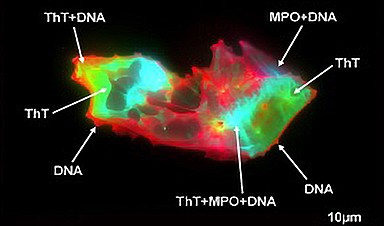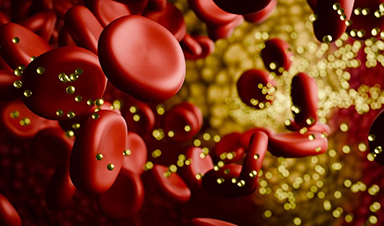Since the coronavirus pandemic shut down the world, scientists have clamored to develop vaccines to prevent the spread and medicines that will cure the sick. But a virus’ main goal is to replicate and infect, so the virus can mutate to survive and continue on its journey. Looking at the coronavirus, you’ll see it has several mutations, including the most recently talked about delta variant sweeping over India and invading the rest of the globe.
This delta variant is about 4 times more transmissible and also more severe than the original Wuhan strain or the A-lineage. And Pfizer (NYSE: PFE), Moderna (NASDAQ: MRNA) and Johnson & Johnson (NYSE: JNJ) have come out to proclaim their respective vaccines’ effectiveness against this and other variants that cause COVID-19. In fact, real world scenarios in India show the effectiveness of the vaccines around 65% effective as opposed to the presumed 95%. That’s a significant decrease. But no matter the percentage rate effectiveness of the vaccines, the only way to win the battles to come is to develop effective therapeutics to complement the them.
Variants Now and to Come
The first strain of the coronavirus coming out of Wuhan is known as the A-lineage. Since the beginning, this highly variable RNA virus mutated to enhance its effectiveness at infecting the population, thereby creating the B-lineage, which includes everything from D614G to the current delta version.
Now, in Peru, medical professionals identified the start of a new lineage — C. That lineage includes the Lambda variant, which could be more deadly than the previous variants of SARS-CoV-2, although the evidence to support that is insufficient at this time. That said, there is no way to stop the virus from mutating again and again into more deadly strains.
So, NanoViricides (NYSE: NNVC), a global leader in nanomedicine, decided to work on medicines to treat and heal the disease — no matter the mutation. And the drug already showed its oral effectiveness in animal models. It is moving as fast as possible to keep up with the prolific virus to get society to a point where it can live with something that looks like it’s here to stay. In addition to NanoViricides, other drugs are in the works to continue the fight against the coronavirus and its variants. These include Merck’s molnupiravir, which received several billion dollars in government funding and failed Phase 2 of clinical studies, and Pfizer’s oral antiviral protease inhibitor PF-07321332/ritonavir combination soon expected to enter Phase 2 clinical trials.
After the Pandemic’s end
The truth is, people are waiting for the pandemic to end, but SARS-CoV-2 and its variants will more than likely become endemic as it keeps coming back in more mutated versions for the foreseeable future. As UK Prime Minister Boris Johnson points out, the population will have to “learn to live with” it.
Because of the social and economic impact the virus has had, it’s unreasonable to think the entire world will continue to shut down indefinitely. As a global society, that’s not a sustainable existence. The better idea is to use vaccinations to limit the spread while developing therapeutics to treat the COVID-19 disease caused by the virus. That way, people can coexist with the coronavirus and get back to the kind of life society so desperately craves.
News
Two New Books From Frank Boehm, NA Founder – To be Released Dec. 2025
Molecular Manufacturing: The Future of Nanomedicine This book explores the revolutionary potential of atomically precise manufacturing technologies to transform global healthcare, as well as practically every other sector across society. This forward-thinking volume examines [...]
What could the future of nanoscience look like?
Society has a lot to thank for nanoscience. From improved health monitoring to reducing the size of electronics, scientists’ ability to delve deeper and better understand chemistry at the nanoscale has opened up numerous [...]
Scientists Melt Cancer’s Hidden “Power Hubs” and Stop Tumor Growth
Researchers discovered that in a rare kidney cancer, RNA builds droplet-like hubs that act as growth control centers inside tumor cells. By engineering a molecular switch to dissolve these hubs, they were able to halt cancer [...]
Platelet-inspired nanoparticles could improve treatment of inflammatory diseases
Scientists have developed platelet-inspired nanoparticles that deliver anti-inflammatory drugs directly to brain-computer interface implants, doubling their effectiveness. Scientists have found a way to improve the performance of brain-computer interface (BCI) electrodes by delivering anti-inflammatory drugs directly [...]
After 150 years, a new chapter in cancer therapy is finally beginning
For decades, researchers have been looking for ways to destroy cancer cells in a targeted manner without further weakening the body. But for many patients whose immune system is severely impaired by chemotherapy or radiation, [...]
Older chemical libraries show promise for fighting resistant strains of COVID-19 virus
SARS‑CoV‑2, the virus that causes COVID-19, continues to mutate, with some newer strains becoming less responsive to current antiviral treatments like Paxlovid. Now, University of California San Diego scientists and an international team of [...]
Lower doses of immunotherapy for skin cancer give better results, study suggests
According to a new study, lower doses of approved immunotherapy for malignant melanoma can give better results against tumors, while reducing side effects. This is reported by researchers at Karolinska Institutet in the Journal of the National [...]
Researchers highlight five pathways through which microplastics can harm the brain
Microplastics could be fueling neurodegenerative diseases like Alzheimer's and Parkinson's, with a new study highlighting five ways microplastics can trigger inflammation and damage in the brain. More than 57 million people live with dementia, [...]
Tiny Metal Nanodots Obliterate Cancer Cells While Largely Sparing Healthy Tissue
Scientists have developed tiny metal-oxide particles that push cancer cells past their stress limits while sparing healthy tissue. An international team led by RMIT University has developed tiny particles called nanodots, crafted from a metallic compound, [...]
Gold Nanoclusters Could Supercharge Quantum Computers
Researchers found that gold “super atoms” can behave like the atoms in top-tier quantum systems—only far easier to scale. These tiny clusters can be customized at the molecular level, offering a powerful, tunable foundation [...]
A single shot of HPV vaccine may be enough to fight cervical cancer, study finds
WASHINGTON -- A single HPV vaccination appears just as effective as two doses at preventing the viral infection that causes cervical cancer, researchers reported Wednesday. HPV, or human papillomavirus, is very common and spread [...]
New technique overcomes technological barrier in 3D brain imaging
Scientists at the Swiss Light Source SLS have succeeded in mapping a piece of brain tissue in 3D at unprecedented resolution using X-rays, non-destructively. The breakthrough overcomes a long-standing technological barrier that had limited [...]
Scientists Uncover Hidden Blood Pattern in Long COVID
Researchers found persistent microclot and NET structures in Long COVID blood that may explain long-lasting symptoms. Researchers examining Long COVID have identified a structural connection between circulating microclots and neutrophil extracellular traps (NETs). The [...]
This Cellular Trick Helps Cancer Spread, but Could Also Stop It
Groups of normal cbiells can sense far into their surroundings, helping explain cancer cell migration. Understanding this ability could lead to new ways to limit tumor spread. The tale of the princess and the [...]
New mRNA therapy targets drug-resistant pneumonia
Bacteria that multiply on surfaces are a major headache in health care when they gain a foothold on, for example, implants or in catheters. Researchers at Chalmers University of Technology in Sweden have found [...]
Current Heart Health Guidelines Are Failing To Catch a Deadly Genetic Killer
New research reveals that standard screening misses most people with a common inherited cholesterol disorder. A Mayo Clinic study reports that current genetic screening guidelines overlook most people who have familial hypercholesterolemia, an inherited disorder that [...]





















